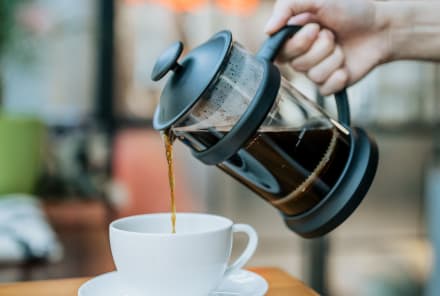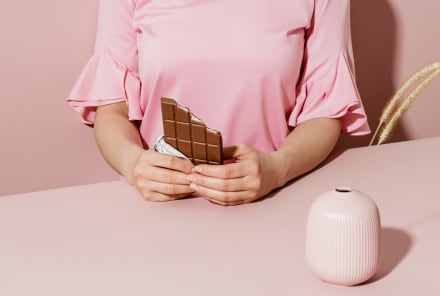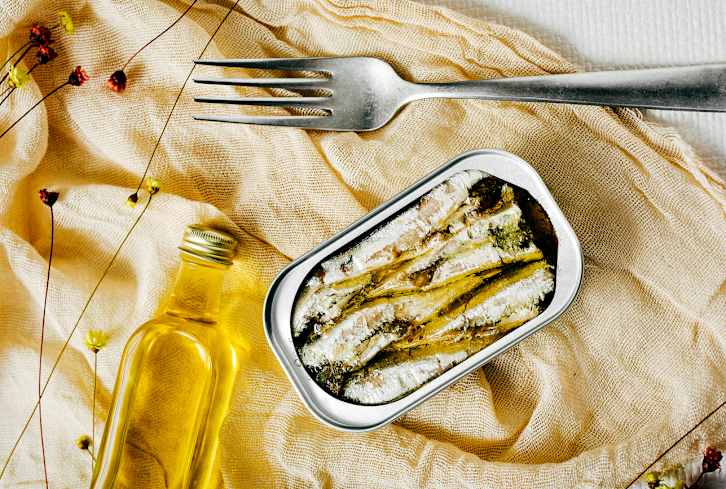Advertisement
Does Sparkling Water Cause Weight Gain? Here's What You Need To Know


Plain water is too, well, plain, for many people, causing them to opt instead for sparkling. Sparkling, seltzer, fizzy, bubbly, club, or soda water is water that has been put under pressure to create fizz. In other words, water is "married" with pressurized carbon dioxide to create those delightful little bubbles that dance all over your tongue.
This kind of carbonated water is sold across the globe as plain, ready-to-drink sparkling water (think San Pellegrino), as part of pre-flavored soft drinks (everything from La Croix to Lemonade), and can also be made at home via special appliances, the most common being Soda Stream.
Discovered way back in 1767, carbonated water became the beverage of choice for many—its only reported downfall (until now) was its acidic nature, which can take a toll on your tooth enamel. Dentists have always been quick to dispel this issue by highlighting soft drinks, in comparison, are about 100 times more erosive for teeth.
One study, though, points to the fact that sparkling water can increase hunger and cause weight gain.
Who? What? Where? How? Why?
A study undertaken by researchers from Birzeit University in Palestine, published in the peer-reviewed Obesity Research and Clinical Practice Journal, put carbonation under the microscope for a period of six months.
The researchers wanted to know whether carbonation alone contributed to weight gain linked to obesity, so they fed a group of male rats the same standard diet PLUS one of four different drinks each: tap water, plain still water, plain carbonated water, and diet carbonated water.
The verdict?
The rats that drank diet or plain carbonated drinks ate more and gained significantly more weight compared to the rats that drank flat soda or plain water. The researchers discovered the rats' weight gain was associated with increased production of ghrelin, the hormone responsible for telling you when you’re hungry.
Put simply: Every single time you feel like eating food, your ghrelin (produced the same way in both rats and humans) is speaking to you; it’s causing you to feel hungry. Try to ignore this reaction, and you’ll quickly graduate from hungry to hangry.
Put simply: Every single time you feel like food, your ghrelin (produced the same way in both rats and humans) is speaking to you; it’s causing you to feel hungry.
To be more sure of these results, the study also compared the effects of carbonated drinks in 20 young men, which resulted in finding that they, too, had higher ghrelin levels after drinking the carbonated drinks versus drinking flat soda or still water. With all this said, it’s important to acknowledge the undeniable fact that poor diet and choice of carbonated drink will always play a huge role in the whole weight-gain-leading-to-obesity issue.
In other words: You are not going to become obese if you keep loving your La Croix or ordering sparkling water instead of still. What you do to move your body each day (exercise) and eat to feed your hunger all count! This study suggests that carbonated, bubbly, fizzy soda or water can cause your hunger hormone to ramp up when you drink it.
It's just one of many reasons to cut down on your sparkling water consumption, including the amount of money spent on the beverage.
You don't need to put yourself out hundreds of dollars to hydrate — and you don't need to fill the environment with all of the packaging that comes with canned and bottles water either!
In my (humble) natural foods chef opinion, I think you’re better off leaving the bubbles to soak in during bath time. Stick with still water, flavored if you must with natural things like:
- chopped fruit: Slice organic lemon, lime, or orange, and keep the peel on because it’s better for you. You could also try sliced strawberries, kiwi, a few blueberries, or even some cucumber.
- a little raw honey (high-grade Manuka is most medicinal) or date or maple syrup.
- fresh herbs: I highly recommend adding some sprigs of fresh mint leaves.
- fresh spices: Slice some fresh ginger (a little goes a long way), and add it to your still water for instant digestive support for your gut garden.
Happy (noncarbonated) drinking!
*Club soda or soda water usually houses additional sodium chloride, sodium bicarbonate, or similar added ingredients. Some seltzer water may also house additional ingredients; always check the ingredients label.


















